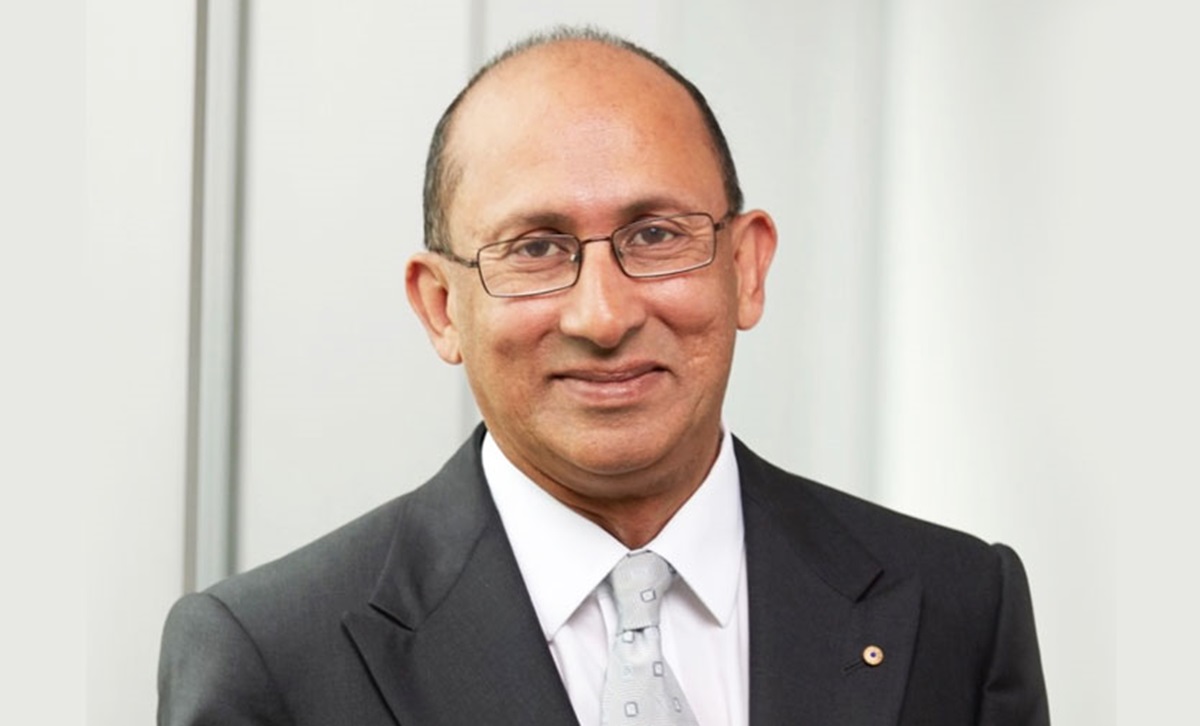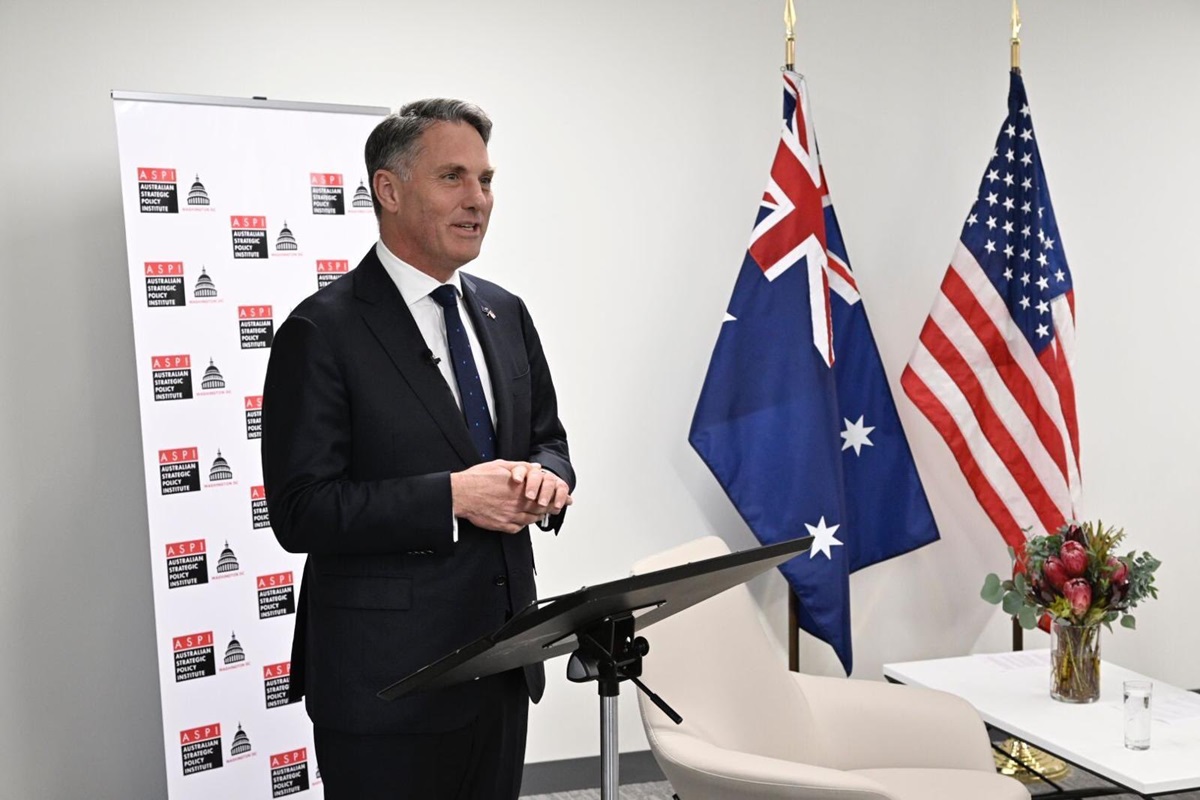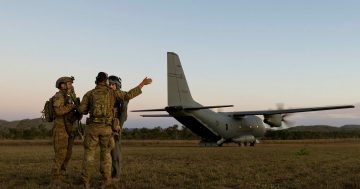
The report by Peter Varghese recommends slashing government funding for national security think tanks such as ASPI. Photo: University of Queensland.
An Australian Government-commissioned review into public funding for national security strategic policy think tanks has recommended that funding for such organisations be scaled back and re-prioritised.
Led by Peter Varghese, the independent review was commissioned in February 2024 by the Department of Prime Minister and Cabinet to consider all government funding for non-government organisations involved in national security-related research, education and engagement activities.
Mr Varghese was selected to lead the review due to what the department said are “his skills and experience drawn from senior positions in foreign policy, trade and intelligence”.
Mr Varghese is the current Chancellor of the University of Queensland. He has served as secretary of the Department of Foreign Affairs and Trade and the director-general of the Office of National Assessments.
The department says the review focused on ensuring that government funding delivers value for money and that funded programs remain aligned to Australia’s national interests and strategic circumstances.
Mr Varghese’s review made 14 recommendations, of which the government has agreed with eight in full, a further three in principle, and has noted the final three.
Some of the agreed recommendations include:
- Implementing a principles-based framework to support consistent decision-making on commissioning strategic policy work.
- Preserving the independence of departments and agencies to commission strategic policy work, provided decisions are consistent with the framework and annual priorities.
- The maintenance of an internal central database of all funding arrangements with the sector.
- Increased secondments and two-way exchanges with organisations.
- Ceasing of funding for the Australian Security Policy Institute’s (ASPI) Washington DC Office once existing contracts conclude at the end of the 2024-25 financial year.
- The government should review the funding of the Australian American Leadership Dialogue (AALD) at the end of the existing grant in 2027-28.
While some commentators have seen the report as a direct threat to the ASPI’s future, the organisation has resisted the findings strongly, especially given that its Washington office was only opened in July 2022 by Deputy Prime Minister and Defence Minister Richard Marles.

Defence Minister Richard Marles at the opening of ASPI’s Washington DC office in July 2022. Photo: Richard Marles Twitter/X.
In a LinkedIn post shortly after the release of the report, ASPI’s Washington Director Adam Leslie said, “To be clear, ASPI DC is not closing”.
“It makes no sense that the Australian government, guided by the Varghese review, would narrow rather than expand the lens through which democracies assess global competition with China,” he wrote.
“At a time when the US government is moving into a new dynamic and less predictable administration, unique, fearless and insightful regional perspectives are critical.
“Regardless of the real reasons, it could be perceived that the recommendation to remove support for ASPI DC is a response to pressure from the CCP [Chinese Communist Party] over ASPI’s work that shines a light on its human rights abuses and nefarious activities in the context of strategic competition,” he added.
ASPI Executive Director Justin Bassi said the review will “undermine the independence of think tanks”, especially at a time when the CCP is exerting its influence in the region with increasing belligerence.
“For China watchers, there’s a grim irony contained in the 14 principles that former senior official Peter Varghese recommends,” he said.
“Fourteen was also the number of grievances the Chinese embassy notoriously unveiled in 2020 and that Beijing expected to be addressed if diplomatic relations were to improve – the 10th of which was defunding ASPI.
“Beijing hasn’t quite got its way through the recommendations of Varghese … But the embassy’s champagne stocks may be a little depleted once its officials have measured his list against their own,” Mr Bassi added.
Former ASPI Executive Director and now Director of Strategic Analysis Australia (SAA) Peter Jennings said ASPI was founded in 2001 by the Howard Government to “put Defence on its mettle – a gadfly to sharpen the organisation’s policy advice”.
“Over 20 years, in ASPI and outside it, I have witnessed multiple attempts – almost all by the bureaucracy – to muzzle the institute,” he said.
“Varghese has been Chancellor of the University of Queensland since 2016, an institution that in 2023 received just over $1 billion in Commonwealth government funding. In February, he was charged to review government spending on ‘strategic policy work’, which amounts to around $40 million a year distributed to a number of organisations. ASPI receives around $4 million annually in ‘long-term funding’ from Defence.
“In parliament’s corridors, this was dubbed the ‘Kill ASPI’ review,” he added.
“ASPI’s crime was apparently to annoy Labor ministers. This included exposing China’s attempts to covertly subvert Australia’s sovereignty.
“Our research on China changed policy thinking in Washington DC, London, Tokyo, and elsewhere, but in Canberra the reaction from the bureaucracy ranged from open hostility to embarrassed ‘don’t tell anyone I said this, but keep up the great work’ support.
“The bureaucracy never wanted ASPI. Now they have a government glass-jawed enough in temperament and dull enough in imagination to let the Institute die a death from slow strangulation.”













